Expect The Unexpected: An interview with comedian Kyle Kinane
By Aaron van Dorn
Kyle Kinane had a big 2012 — he toured the world relentlessly, he became the voice of Comedy Central and his second album, Whiskey Icarus, was voted by the AV Club the number two comedy album of 2012, beating out some heavyweight competition: Louis CK, Paul F. Tompkins and Hannibal Buress among them. His plans for 2013 are a bit more modest.
“I dunno, try and not piss it all away, I guess,” he said. “Write new jokes — hopefully as decent as the ones before. I just don’t want to go backwards — that’s my main focus. Do shows, have fun. Stay alive.”
Going backwards shouldn’t present too much of a problem for Kinane. A stand up comedian for going on fourteen years, Kinane originally hails from suburban Chicago. He attended school at Columbia College Chicago as a creative writing major.
“Yeah, it sounded cool,” Kinane said with a sigh. “It was one of those things where, ‘I guess I have to go to college,’ which now I changed my mind on.”
That creative writing degree wasn’t a waste, though, as a short story writer’s eye for telling details runs throughout Kinane’s humor. He’s a gifted storyteller, able to spin out tales that end up in truly unexpected places by focusing on small situations.
“Sometimes something works that’s funny enough, and then I’ll add a detail to it, and then I’ll add another detail to it,” he said about his process. “If people keep laughing at the details, then I’m going to keep adding them to make a long story. The pancakes [referring to a hilarious, lengthy riff on his latest album], here was a guy with a bag of pancakes like some weirdo. But then people laughed enough at that I thought, ah, maybe I can get more. So I keep adding and keep adding. I was lucky enough where that one worked out. Sometimes things go the other way — some things I ramble on about. Somethings start short and just get more details. Broad stories — big fish stories.”
How does he keep a balance between longer material and his shorter bits? “It depends,” Kinane said. “Sometimes a story is worked out — you know, something happened and a story is already put together or sometimes there’s a minor detail that I think should be greater than it is. I have a failing story right now that I want to keep working at about seeing a metalhead at a gun range. Which nobody wants to laugh at. I don’t know if it’s not funny, or if it’s sensitive material or what. I keep going up with that over and over again and I’ve kind of hit a roadblock.”
But those awkward pieces that aren’t quite there are all part of the process of developing a set. “I get the idea, and I go on stage and try to have some sort of weird, awkward, hopefully humorous one-sided conversation with a group of people,” Kinane explained. “I’m pretty rambly as it is. I take the roundabout way to maybe get to what’s funny. I get up and bullshit for a little while, and then the bullshitting hopefully gets more and more precise over time. My writing process is not writing anything at all, but rambling about it ‘til I think I’ve got all the beats in it to where it’s an efficient piece of comedy.”
A wry sense of self-deprecation is a throughline in all of Kinane’s humor, which ranges from hilariously dark musings on just exactly where the line between good times and cries for help lays (the drive through of a Wendy’s, apparently) and darkly hilarious reflections on living by yourself in your mid-thirties.
“The self-deprecating humor thing I alway think is funny,” Kinane explained. “As far as subject matter I’m qualified to talk about, myself is probably really the only thing I can speak with any authority on. My own life. So that’s why it’s the most funny to me.”
Kinane played in punk bands in his youth in Chicago before discovering comedy, and while his love of music comes through in the track titles on his two albums, he hasn’t kept playing as a sideline.
“I was never good to begin with, so there wasn’t much to salvage in the way of being a musician,” he admitted. “I still try and go see shows. Moreso now, because I realized I was missing out on so much music. Not new music, stuff I missed out on in the last ten years. I was like, ‘Oh, why did I get lazy about that?’ I got reinspired to go see bands. Also, just being away from comedy for a second. I need a break, I need to see other types of creative output.”
Part of that punk spirit carries through into how Kinane’s career. While it’s become a cliche for some comedians to use stand up comedy as a means to an end — we’re not too far away from the comedian-centric sitcom dominated 90s — Kinane directs his energies at his stand up.
“I didn’t even know there was an industry when I started. I just needed something to do ‘cause I wasn’t good at music,” he said. “‘Alright, I guess I’m going to try this comedy thing.’ There was no fame or anything — just, ‘Oh, I found my creative outlet. Cool. I’ve found what I’m going to do at night.’ You start getting encouragement, ‘Oh, it’s kinda going good.’ You’re at comedy festivals. Well, alright. I guess I never had anything else to pursue with any kind of potential, so I may as well go for this. But I didn’t know what to go for. Do you have a sitcom or anything? No, just pay me money to tell jokes. That’s all. So I lived in LA for four years with the same kind of encouragement, but industry-wise, no, I didn’t write a sitcom. I never even asked. Nope, just gonna write. Just gonna write these jokes.”
If you have any interest in the world of comedy, you’ll have noticed that one of the major developments over the last ten years has been the rise of podcasts. You can’t turn around without a comedian or two starting up a new one. Kinane, however, has so far eluded the siren song of podcasting — and like many comedians, he doesn’t really listen to comedy in his spare time.
“I don’t listen to podcasts, I don’t listen to comedy albums,” he said. “You’re doing it every night. I’m seeing a lot of comedy as it is. When it comes to my free time, I will listen to music. Which is funny, because that’s what I hear talking to these bands, meet bands: when they’re in the van on tour, they’re listening to comedy. They’re more familiar with a lot of comedy than I am. That’s what they’re listening to in the van, because every night they’re seeing music. They want something that’s not blaring at them.
“I’m sure if I had an office job, I’d be devouring them,” he said about podcasts. “But as it stands now, the only time I listen to audio is driving the car or on a plane. I’ll listen to them on a plane, but that’s thing: I’m out instantly. I don’t even make it to the guest on WTF.”
But Kinane isn’t unaware of the power of podcasts as a means of connecting with an audience.
“I think they’re following individual comedians because they’re learning about who they are as people,” he said of podcast listeners. “If somebody knows who you are, they’re laughing at setup because they know who you are. Like my best buddy complaining about stuff. I love it, because he knows how to complain and make it humorous, so as soon as he starts, ‘Oh, you’re not even going to believe this shit today,’ I’m already laughing at it. And podcasts, comedy podcasts, allow strangers to do that with comedians. Without having to go up there like, ‘Well, I wonder if this guy is going to be funny?’ You already know the personality, which is part of the setup. You’re already in tune with their voice and point of view. I think it’s beneficial in that way. Also, I had my ass handed to me once — and this was a couple of years back — I smarted off about, ‘Oh gee, another podcast, who makes this shit?’ And somebody said, ‘Well, we found out about you from podcasts.’ Okay, touche. I will eat my shoe now because I smarted off like that. Just because I don’t listen to them doesn’t mean people don’t.” He paused and added, “I do think there’s too many of them.”
(Follow Kinane’s adventures here: http://www.kylekinane.tumblr.com/.)



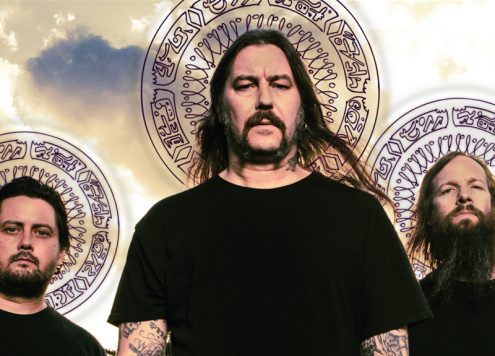
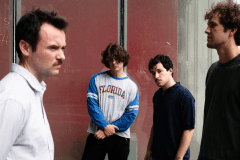
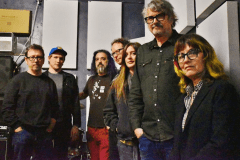
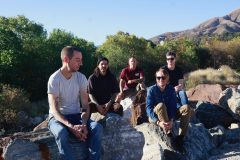
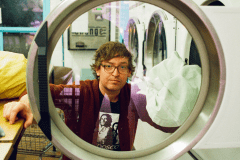

Social Media